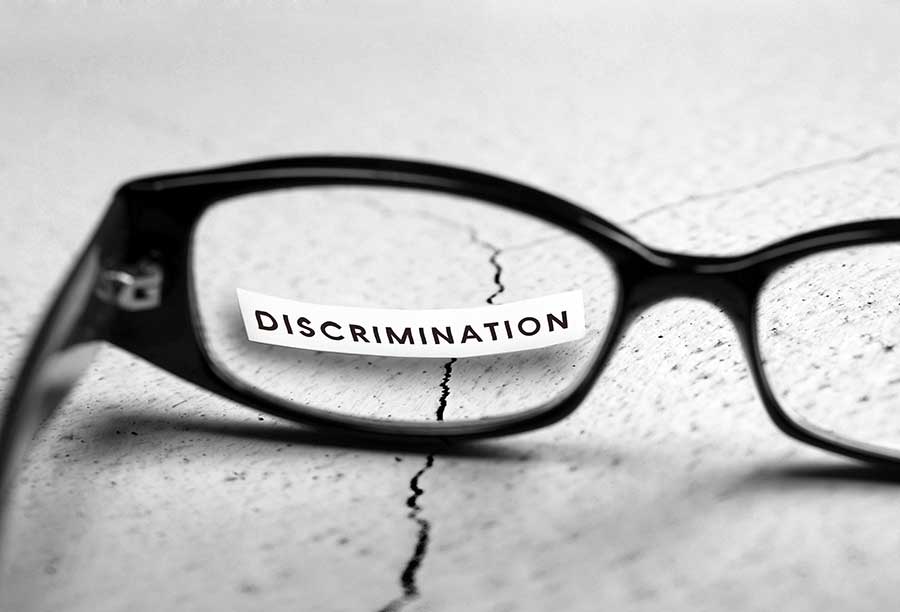
Patricia Taylor joins WM People as chair
Patricia Taylor has been appointed chair of the board of directors of workingwise.co.uk's...read more
Louise Woods* talks to workingwise.co.uk about her struggles to get a job that she enjoys and about how an ageist society makes her feel invisible and ignored.

Louise Woods’ working life has not been what she hoped for, particularly since she hit middle age and despite all her efforts. She thinks ageism and the way older women are treated in particular has played a big part in that and that middle aged women’s rich life experience is often overlooked.
Louise*, who lives in London, wanted to be a make-up artist at the BBC when she was young. She had had a difficult time at school because of very bad asthma and says that, being working class, no-one ever suggested she go to university. However, to be a make-up artist you had to be 21 so Louise went into hairdressing instead and then struggled to get the training she needed. She took an administrative job and stayed in admin for many years until she had her two children. She ended up running her own playgroup on a voluntary basis and helped many of the younger mums who came in. In 2016 she finished a degree in early childhood studies after developing an interest in how children develop empathy when it comes to the way they treat animals.
Louise has seen ageism at both ends of the spectrum in her time – when she was younger she says she was treated badly at work because of her age and at university she feels her lecturers were very flippant towards her because she was older than the other students. “They expected me to know everything because I was older, but what I said didn’t count,” she says. She felt she didn’t fit in and any confidence she had had in herself disappeared as she got older and put on weight. “I felt I had become invisible,” she says. “It really bothers me. Unless you look great for your age you get ignored.” She understands that people are attracted more to people who look ‘nice’, but she says that when it comes to work, for instance, work in customer services, people should be trained to be conscious of that bias.
Louise loves music and says that even that seems to be restricted because of her age. She gets comments when she goes to music festivals and when she was a student and went to a club with her younger colleagues a security guard told her he wasn’t happy about letting her in.
She has seen many examples of ageism at work due to being an older woman. She currently works in a special needs school as a teaching assistant, despite having a degree and pursuing other studies after work. Louise, who is 54, also loves working with animals, enjoys walking her neighbours’ dogs and volunteers at two hedgehog groups. She has given talks to schools and the like and one of the organisations recently said they wanted to employ her. However, the government funding they received for a hedgehog officer was earmarked for a person under 24. Louise doesn’t begrudge the young person the job, but she was devastated not to get a role she had so wanted.
That is not her only experience of working with animals. Before Covid Louise was headhunted for a role at an animal charity as a supervisor. It was less money and longer hours than she had been doing before that, but she loved it. However, the place she worked at was closed down during the pandemic.
Her family has also been badly hit financially in the last few years. Her husband, aged 60, lost his business. He is now working long hours as a security guard and comes home exhausted. The family have not put the heating on for four years after their boiler broke and they couldn’t afford to have it fixed. They have had to take out a loan in the end which they are still paying back. Louise and her husband don’t have a bedroom and sleep in the living room. Their friends have helped out and bought the family a washing machine for Louise’s birthday when their old one broke down. Louise says she cannot imagine being able to retire. “It’s not the life we envisaged for ourselves,” she says. “I have tried to better myself, but no-one values or listens to me.”
Louise would like to change how people view older women. She says she feels she has lots to contribute and wishes people could see past what women look like. But up until now the world seems not to want to see that and that makes her feel “worthless”. She is worried that those attitudes will remain when her daughter, now 19, grows older. She hopes younger women will wake up to the problem and take action. She says: “I want to warn women that they will not be valued and will still be judged on their looks when they get to my age.”
*Not her real name.

Steve Abbotts speaks to workingwise.co.uk about a career spent working in payroll and how his current role at Azets has given him a new lease of life. read more

Working life stories: Andrew Francis Howse
After 30 years working in investment management, 56-year-old Andrew decided to seek out a new challenge and become a personal trainer. Here he tells... read more

Laurence Gouldbourne talks to workingwise.co.uk about his working life, from working in job centres and the Crown Prosecution Service to leading... read more

Jonny Shingles, a former Tornado jet pilot in the RAF, talks to workingwise.co.uk about the twists and turns of his working career and his current... read more